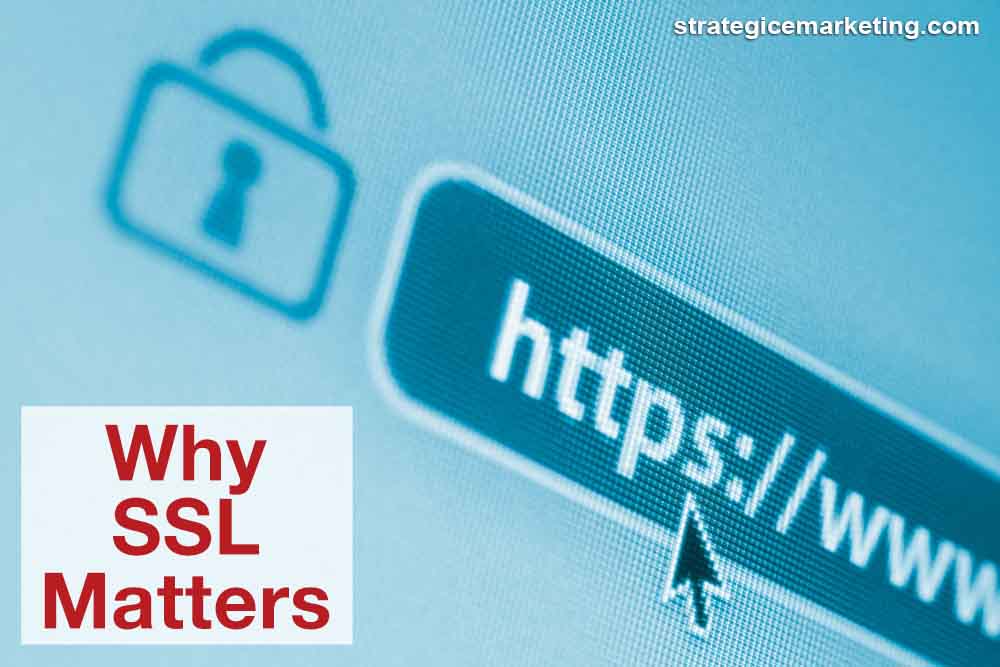In today’s online world, having a business website is practically an essential tool for marketing and customer service. However, there is one important factor to consider that will make a huge difference in the way internet users interact with a business’ website: having an SSL certificate. It’s so important, in fact, that Google will notify visitors when they pull up an unsecure site. Understanding why SSL matters and what customers expect is key to ensuring your website operates optimally.
What is SSL?
SSL stands for Secure Sockets Layer, which essentially means your computer will be speaking a language that only the destination computer can understand, keeping your important info safe. An SSL certificate is proof that the connection is being used to communicate only with the intended recipient. The Certificate Authority that issues your certificate validates the connection regularly, which provides ongoing peace of mind that your customers’ information is safe.
Once the connection is validated, all information is encrypted for transfer to the connected computer. Essentially, an encryption key is combined with a company’s credentials such as business name, address, and domain and server names. HTTPS is a secure protocol created by SSL validation and encryption, and it uses strong algorithms to ensure that no other computers can access the encrypted information.
Why should SSL matter to me?

If your business doesn’t have an SSL certificate on its website, any information your client or customer enters on login, opt-in, or payment pages is at risk of being intercepted and used by a third party. Depending on what is being sent, this could compromise not only the customer’s information but also your company’s integrity.
Customers are growing tired of hearing about cyber crime and expect a high security level when sending their information across the web. Savvy internet users are on the lookout for the “HTTPS” or padlock icon at the beginning of web addresses and verifying the website is secure before entering any information. The Certificate Authority may also offer a warranty to protect customers from financial loss in the event of an information breach. Shrewd shoppers will verify that a commerce company displays the trust mark of the Certificate Authority protecting the transaction.
Google and SEO
Unsecure websites will also lose SEO ranking, as visitors who arrive at the site and quickly leave will show as high exit or bounce rates. Google is warning visitors about unsecure content before allowing them to visit the page. This means that a company without a secure website will lose a great deal of traffic from the very first click.
Google also prioritizes secure websites in search results, ensuring secure sites have a better organic reach than unsecure ones. It only makes sense to take the time and invest in an SSL Certificate for your business page to ensure it performs optimally.
What’s next?

There are several Certificate Authorities that offer a range of services to fit a variety of needs. Your web professional can help you select the Certificate Authority that’s right for your business and get it installed on the necessary pages.
Customers are looking more and more at cybersecurity as one factor that determines where they shop online and are monitoring their website research more closely. Developing a level of trust by providing a secure website will get your visitor’s time on your site off to a great start.
If you still have questions call us or schedule a time.

